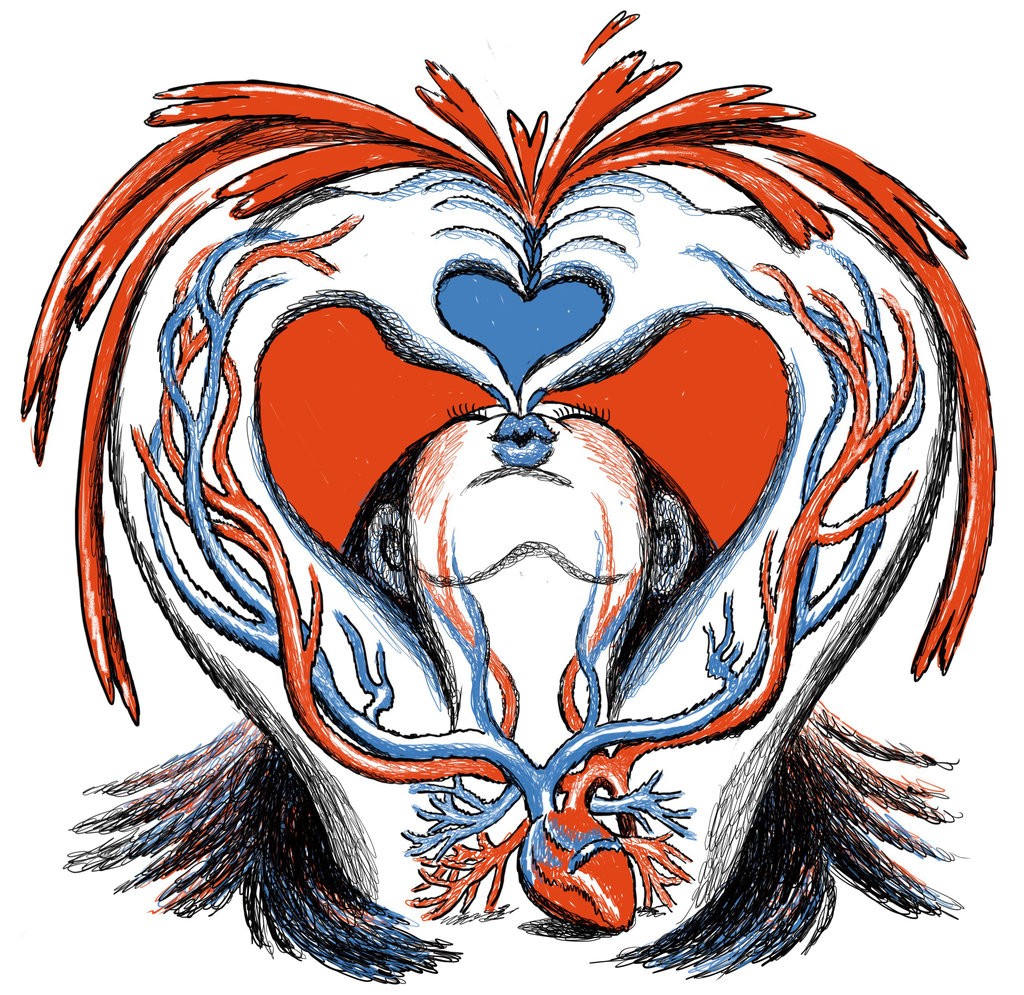
17 Sep “Why Your Cardiologist Should Ask About Your Love Life” – New York Times
“For many years and across many cultures, the heart was thought to be where our emotions resided. The word ’emotion’ derives in part from the French verb émouvoir, meaning ‘to stir,’ and perhaps it is only natural that emotions would be linked to an organ characterized by its agitated movement.
Today we know that the heart is not the source of our emotions. And yet more and more, the field of medicine is coming to understand that the connection between the heart and the emotions is an intimate one. The heart may not be the origin of our feelings, but it is highly affected by them. We have learned, for example, that fear and grief can cause serious cardiac injury. During emotional distress, the nerves that control the heartbeat can set off a maladaptive ‘fight or flight’ response that causes blood vessels to constrict, the heart to gallop and blood pressure to rise, resulting in damage to the body….”
Read


